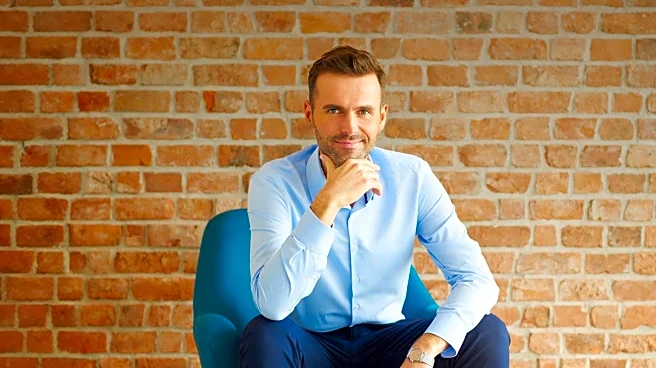What's Happening?
Leadership expert Simon Sinek suggests that taking seemingly backward career moves, such as accepting lower-paying jobs or returning to school, can lead to greater happiness and success. On his podcast, Sinek explained that these moves can act like a slingshot, propelling individuals forward more effectively than continuous forward momentum. He emphasized the importance of learning and pursuing enjoyable opportunities, while cautioning against the fear of judgment from others. Sinek's insights are particularly relevant for students and early-career professionals who may feel pressured to compete with peers.
Why It's Important?
Sinek's perspective challenges conventional career advancement strategies, highlighting the potential benefits of non-linear career paths. This approach could influence how individuals, especially younger professionals, navigate their careers in a rapidly changing job market. By encouraging a focus on personal fulfillment over traditional success metrics, Sinek's advice may lead to a more satisfied and adaptable workforce. This shift could also impact employers, who may need to adjust their expectations and support systems to accommodate employees seeking diverse career experiences.
What's Next?
As more individuals consider non-traditional career paths, employers might need to rethink their talent acquisition and retention strategies. Companies could benefit from fostering environments that support career exploration and personal growth. Additionally, educational institutions and career advisors may start to emphasize the value of diverse experiences and skills over linear career progression. This trend could lead to a broader acceptance of varied career trajectories and a more dynamic labor market.
Beyond the Headlines
The concept of 'backwards' career moves raises questions about societal norms and the pressure to conform to traditional career paths. It challenges the stigma associated with career changes and highlights the importance of resilience and adaptability in the face of evolving job markets. This perspective may also encourage a cultural shift towards valuing diverse experiences and lifelong learning as essential components of career success.










